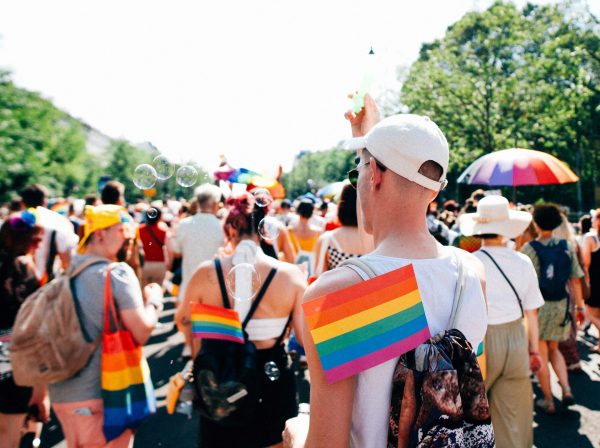(For the purposes of this article, the subject is being referred to with he/him pronouns on the understanding that this was a cisgender, male-identifying person, with all other articles on this subject identifying him as such.)
Recently, in Washington state, an incident occurred in Seattle where a man entered the women’s locker room at a public pool, citing Washington’s law that allows transgender people to use the facilities matching their gender identity rather than their sex. USA Today says that the man did not indicate to the staff about his gender identity, and instead just entered the facility and started to change, saying that the law gave him the right to be there. Opponents to Washington state’s law are pointing at this incident, saying that it is giving leeway for sexual predators to go into spaces and spy on potential victims. It’s the same old argument perpetuated against transgender people, particularly trans women. The basis of this argument is to protect “women” (DFAB-designated female at birth-individuals, regardless of individual gender identity and/or expression) from “male” sexual predators, and that these DFAB people need their own spaces without exception.
Here are what the opponents are not thinking of, though: sexual predators would try to gain access to spaces regardless if there are laws “allowing” them in the first place. Abusers and predators already do anything that they can in order to get access and groom their victims, and being DMAB (designated male at birth) doesn’t instantly make you any more predatory–just ask any person who has been preyed upon by a DFAB person.
The point of “he did not identify himself as a woman to the pool staff” is also a concern because that would leave out transgender individuals who may be closeted and appearing as their designated gender. It simply does not sound like the safest option for a transgender individual to out themself as transgender, especially if their state doesn’t have solid laws in place meant to protect them. According to a study by the Williams Institute in 2013, about 70% of transgender people experience discrimination when attempting to use the restroom.
Having anti-discrimination laws in place feels like the correct first step, but this is clearly not enough. There need to be stronger assurances in place that would help the safety of transgender people when using facilities, and using one’s privilege in a way to abuse that law which was never for you in the first place is disgusting. What can really be done to protect our transgender friends and loved ones from harassment and preventing cisgender people from abusing their power? Gatekeepers practically want guards posted at the doors of restrooms and locker rooms to check the genitals of anyone entering; ignoring that these places are more dangerous for transgender people in the first place, and cisgender people are now abusing their privilege to gain access to these spaces because “the law says so.” Where does that leave us?
Let’s consider: Gender-neutral facilities.
But, would more gender-neutral facilities help or hurt this cause? According to this page from Amplify Your Voice, gender-neutral facilities would not only benefit transgender people but also their families and people with caretakers. This page also addresses the concern that the opposing argument states, wherein women need their own facilities, and points out that having gender-neutral facilities in addition to women’s only spaces is a possibility. It doesn’t address how this would protect trans women in these spaces–the very group that most often gets painted as sexual predators in this discussion in the first place–but in the end, having more gender-neutral facilities would still be a welcome addition. It would provide more space for transgender individuals (including non-binary people), families with small children (gender-neutral bathrooms already exist and are labeled as “family restrooms”), disabled individuals, or really anybody who wants a little more privacy. It’s not a permanent solution by any means, but something workable.





